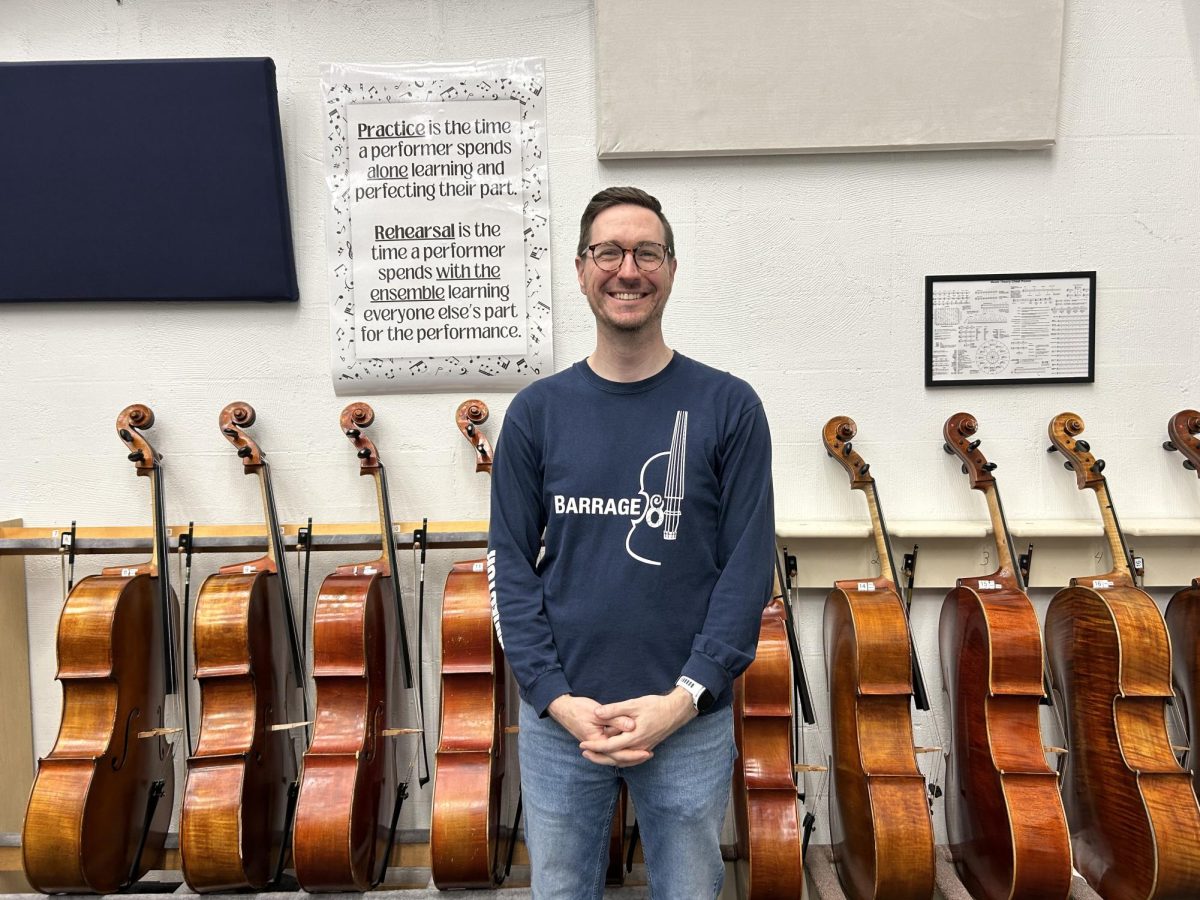Clements Soulmates
November 30, 2018
When humans grew too powerful, Zeus came up with a solution: weakness through love. According to Plato’s Symposium, soulmates were created because Zeus recognized that the power humans possessed was strong enough to threaten the authority of the Gods. As a result, Zeus split up the original mortals of four arms, four legs, and two faces, into two whole people. But these humans died off too easily and thus, Zeus called upon Apollo to tie and reconstruct their bodies so they would not be utterly useless. Consequently, the mortals would continue to seek their other half to feel complete again.
In other words, soulmates were borne out of punishment. Though over the years, the concept of fate and the quintessential human being tailored for you and only you, has evolved into a romantic fantasy or, to hopeless romantics, the only reality.
Plato’s interpretation of soulmates is not the only one that buys into this belief. In East Asian folklore, originating from a Chinese legend, two persons are destined together by a red string the Gods had tied for them. It may stretch or tangle, but it will never break. Soulmates are also associated with past lives, in which a soul is drawn to another soul because it senses the other’s familiarity. There is even a story involving the stars and galaxy where you and your soulmate were created of the same stardust and have since been living out your lives on Earth, constantly wishing for the other.
Soulmate stories have undertaken reimaginings in the age of the internet. In various web platforms, people have offered alternate universes where people are born with specific soul marks to distinguish who their destinies are supposed to be. Soul marks can come in the form of a tattoo of your soulmate’s name or the first words they would ever say to you. One story proposes that the world is black and white, but only starts gaining color once you have found your person. Another is how you stop aging until you meet your fated lover and only then, will you grow old together. But there are still stories where no one gets to have a partner or where they simply reject the idea of fate altogether. In these subversions of the soulmate trope, people are outrightly going against fate and choosing free will instead.
In this universe, most people actually believe in fate. In a Marist poll conducted in 2011, over seventy-three percent of Americans believe in soulmates: seventy-percent being men and seventy-one percent being women. The younger demographic makes up eighty percent of the believers.
From a scientific approach though, soulmates are quite practical. Dr. Raymond Knee conducted a study in 1998 in which he resolved to see how relationships and partners end up based on their ideas of love. Knee categorizes people into two camps: Destiny Believers have a fate mindset and Growth Believers have a free-will and choice mindset.
Destiny mindset people commonly have short-term relationships. They are most likely to build their partner in their minds rather than the relationship as a whole. In their approach to resolve problems, they tend to “distance [themselves] from the relationship.” Meanwhile, growth mindset people have “more committed, long-term” relationships and engage in strategies that would attempt to resolve the situation and “grow from the experience.” These are the type of people who learn from their mistakes and focus more on building the partnership.
But what do students in Clements High School think? Is there truly only ever one person for you? And if there is, was it fate? Or a choice?
Beginning with a newly made couple, two freshmen are unwittingly ambushed about questions regarding love and relationships. When the dreaded question was asked, “Do you believe in soulmates?” the two look at each other anxiously. The guy says, “Yes, I do.” His girlfriend responds, “I don’t think so.” But their answer to “Do think you’ve met your soulmate?” is more hopeful than the contrasting views they revealed. They reply, “Maybe.”
Joining a group of juniors on the discussion, the vote was overwhelmingly against destiny.
“I don’t think soulmates exist.”
“I just don’t like the idea of fate.”
“I believe people can end up together but I don’t think it’s destiny.”
“I disagree with the idea of people being connected without meeting them first. But I do believe in love.”
In spite of them, the junior girl leading the conversation assumes a more hopeful tone.“I believe that there could be soulmates, but you’re less likely to meet your soulmate in high school because you are still learning more about yourself. Meeting your soulmate could tie you down. I believe that love is an emotion that every human being has, but not all can express it.”
Two others, not present in the discussion, would reiterate the same views:
“I guess I believe in soulmates because I think there’s a special someone out there for everyone,” says one.
“I don’t think you can meet your soulmate in high school because they’re going to move away from each other,” finishes the other.
One junior has an extreme take on the topic: “No one person is born for one person. ’Oh you’re my perfect match,’ I think that’s superficial and fake. I do not believe in soulmates because it depends on what you go through.” She then jokes, “Some people have a lot of breakups–like me.” However, she does not renounce it wholly, for she still believes in love.
Another student would agree with her, with his short but distinct answer: “Soulmates are not real.”
A senior in a relationship for more than a year offers a more optimistic perspective, “There’s a lot of people on Earth and for one person to feel as though they found the one person they’re with, who in their eyes, is their soulmate.” When asked about his relationship, he confidently claims, “I can’t see it going down anytime soon.” (They broke up two weeks later.)
In most cases, the interviewees renounced the idea of a predestined life partner, but all of them do believe in love. Case in point, you do not need a soulmate to experience love. What we are inherently vying for is not a perfect match, but just someone who can love us in the same vein that we would love them.
Ultimately, partners have to choose to stay committed to each other. Problems don’t emerge by some design of fate and the inevitable break up would be left to the hands of the people involved. Perhaps, to some people, they won’t ever stop loving an ex, but, in the end, it was their choice to leave.
Though that is not to say that the concept of a destined partner is a form of fantasy, nor are people naive to believe in that concept. Instead, it should be considered as an approach to relationships, but not so much that it starts to rule and suddenly takes priority over the relationship itself. If you wholeheartedly believe that you have found your soulmate, then you should endeavor to exert the effort to make the partnership successful.
Soulmates can exist. Maybe it was a decision chosen for us since the beginning, or maybe it is our choice that we get to decide now. That feeling of belonging to someone is enough to admit to ourselves that they could be the one. Even if you do not believe in fate, or even believe in love, you cannot deny the existence of souls belonging to each other. They just do.







